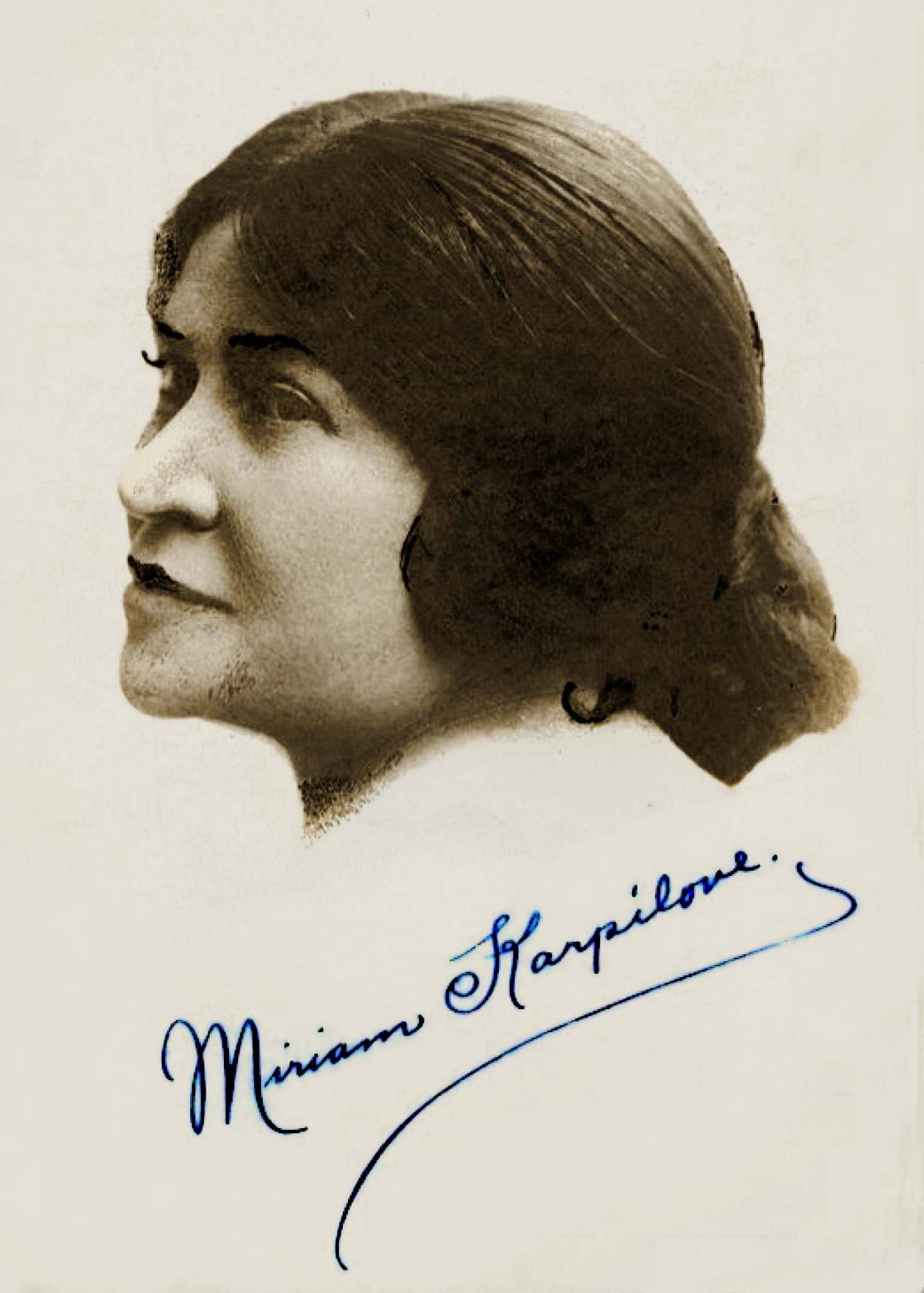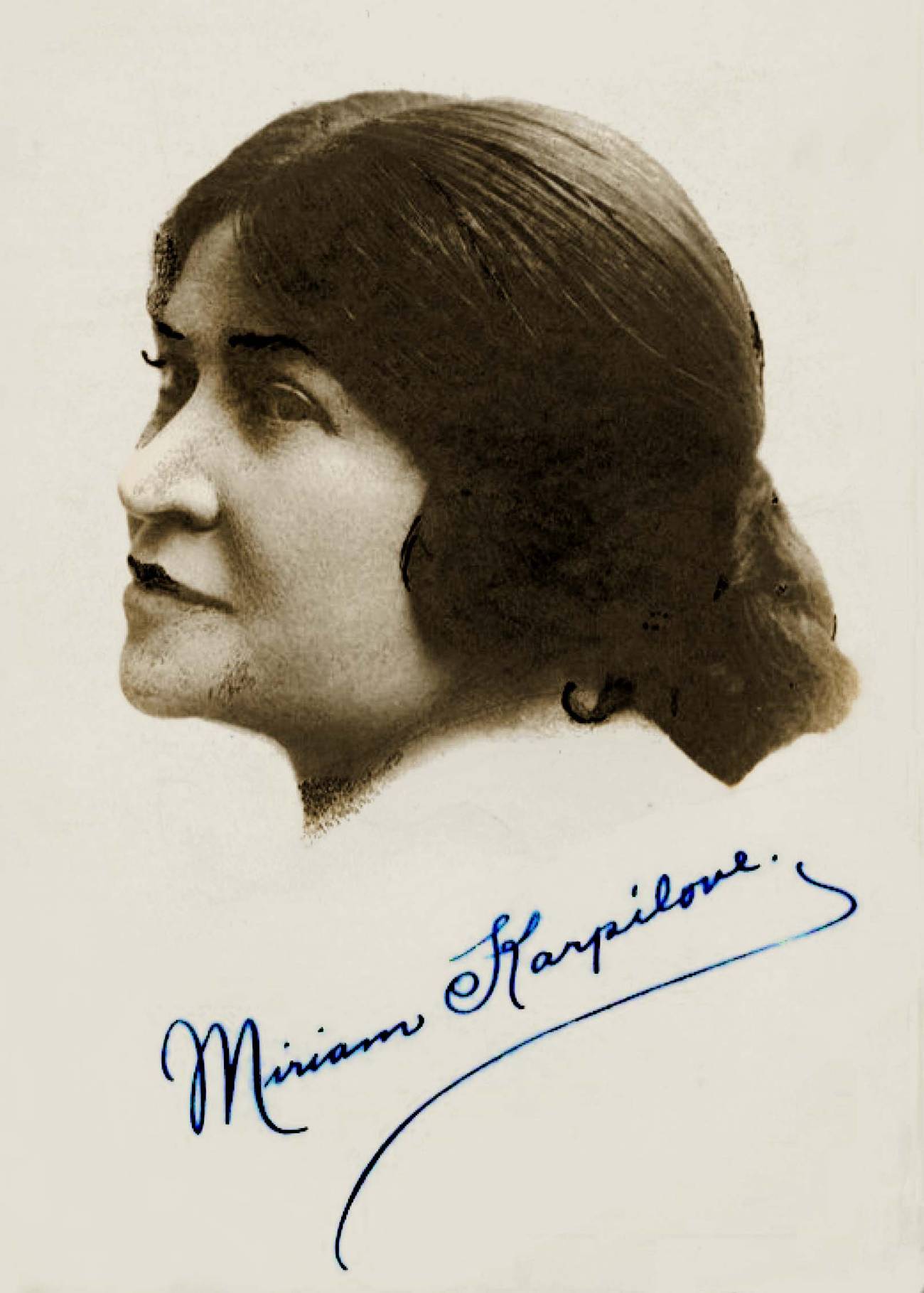(Not Much) Sex in the City
Virginity and free love in the immigrant world of tenements, in Miriam Karpilove’s newly translated, unselfconsciously Jewish, and hugely popular Yiddish novel ‘Diary of a Lonely Girl’




One goal of this column has been to persuade you to read dusty old Jewish books that were edgy and cool a century ago. This means, I hope, that you are getting a powerful impression of the depth and inventiveness of Yiddish literary artistry. What you’re not getting, however, is a realistic sense of what tens of thousands of Yiddish-language readers actually read for fun. That enormous swath of Yiddish literature is far less accessible to non-Yiddish readers, since relatively little of it has been translated. But now you have a rare opportunity to participate in that more common Yiddish reading experience, with the brand-new English translation of Diary of a Lonely Girl: The Battle against Free Love, a 1916-18 novel by the smart and prolific American Yiddish author Miriam Karpilove.
The popular Yiddish press in New York a century ago, like the popular English press, served a role for its audience that somewhat resembles today’s network TV. Each paper offered its own news reporting (and, like today’s network TV, that reporting had its own unambiguous political slant), but each also regularly published fiction, often in the form of serialized novels. This was generally not the artistically edgy material one might find on today’s streaming services, but rather more network-ready, sitcomlike stuff that reinforced or gently nudged social norms without directly challenging them, with potentially offensive things bleeped out and just enough titillating or slightly subversive material to keep people coming back. It was less like Transparent and more like Friends—which is to say, enormously popular.
Diary of a Lonely Girl, which ran from 1916 to 1918 in New York’s Yiddish daily Di Varhayt (“The Truth,” a mainstream publication not to be confused with the later Soviet Yiddish paper of the same name), was one of these popular serialized works, and this middlebrow space was its author’s stomping ground. Born in Minsk in 1888 and immigrating to New York at the age of 17—old enough to maintain virtuosic command of her native Yiddish, but young enough to thoroughly become American—Karpilove was the rare woman who was commercially successful enough to make a living as a Yiddish writer, publishing hundreds of stories, novels, and plays. Like network TV fare, Karpilove’s works expressed a zeitgeist while very gently nudging its boundaries, reassuring her audience that their sympathies are in the right place.
In the case of Diary of a Lonely Girl, the zeitgeist was the environment of “free love” (read: extramarital sex) among New York’s “free-thinking” (read: secular and politically radical) young Jewish men, and the contradiction between their self-serving desires and a social setting where virginity was still paramount to young women’s futures. Young Jewish immigrants whose parents remained in the “old country” found themselves suddenly free to make their own romantic choices—or at least, the men among them did.
The sexual practices of young Jewish women were aggressively policed. This surveillance was conducted not merely by matchmakers hoping to stand in for parents overseas, but also by nosy landlords and “vice commission” city cops empowered to arrest women as prostitutes for behavior we might today describe as dating. As a result, men’s risk-free “freedom” resulted in women’s dire risks—not merely unwanted pregnancy or venereal disease, but also eviction and imprisonment.
Diary of a Lonely Girl is an intimate look at this challenging reality. It consists of its unnamed single-girl heroine’s romantic encounters with several men, each of whom attempts to convince her to get into bed with him as she resorts to increasingly desperate hijinks to Just Say No. Like live tweets during a network TV show, the newspaper published countless letters from readers cheering the heroine on.
The book’s valiant translator, Jessica Kirzane, makes the case for reading Diary of a Lonely Girl as an “intensely political” work. The novel ran alongside articles about World War I, and Kirzane argues that the novel’s “Battle against Free Love” is “very much a wartime novel,” intertwined with WWI’s large-scale destruction of Eastern European Jewish communities. This devastation shapes the young characters’ lives, as men take advantage of traditional life’s collapse by chasing after no-strings-attached sex, while the old-world values are still enforced for women. Kirzane provides great detail about the “changing law and moral panic,” including the anti-prostitution Tenement Act that particularly targeted poor immigrants, subjecting unmarried women caught entering or leaving tenement buildings with men to arrest and imprisonment. Immigrant women living alone in rented rooms, like Karpilove’s heroine and her friends, seem to have the ideal circumstances for sexual exploration, but a mere platonic visit could result in eviction or even jail time. Much of the book’s plot involves the protagonist’s confrontations with landladies who throw her out after spotting her with young suitors, concerned about their own “respectability” (and bottom line). The book also makes references to birth control, a topic whose open discussion saturated the Yiddish- and English-language press and even popular films at the time. All this, Kirzane argues, makes Karpilove’s book much edgier than it appears, and more than the sum of its parts.
As I read Miriam Karpilove’s decidedly mass-market novel, I found myself touched by how profoundly and unselfconsciously Jewish this book is.
I was grateful for Kirzane’s historical context, because without it, Diary of a Lonely Girl really is no different from Bridget Jones’ Diary or Sex and the City, without the sex—or to be more generous (and more parallel in terms of virginity), Pride and Prejudice, whose plot was once described to me by a clever friend as, “Will you marry me? ... [300 pages later] ... Yes.”
Like Elizabeth Bennet, Karpilove’s protagonist is a gimlet-eyed cynic who sees through everyone around her. The book opens with her spotting A., her beloved, kissing another woman in the window of a neighboring building. While pining for A., she finds herself wooed by B., who openly propositions her despite having a pregnant wife. Ditching both A. and B., she meets C., and decides to use C.’s obvious obsession with her to get over her obsession with A.—an effort that backfires when C., an activist who gives public lectures on “free love,” spends the next hundred pages aggressively trying to convince her to sleep with him. Later, D., E., and F. make their own moves. Much to her fans’ delight, our heroine never gives in.
The draw here is not merely the racy plot (which is merely G-rated today), but also the heroine’s wit. When C. asks her if she wants to be “free,” she retorts, “Of you, yes.” When C. bloviates that, “Instead of holding a man back, a woman should help him to achieve happiness,” she tells the reader, “I did not feel like helping him achieve happiness. I felt that I’d feel a lot better if he were on the other side of the door.” When F. tells her about his godawful idea for a novel, she remarks, “To give myself a rest from his rich imagination, deep psychology, elevated soul, tremendous insight and colossal talent, I remarked on his unusual appearance. ‘Why are you so pale?’” The heroine’s sarcastic voice makes the book feel more contemporary than it is, as does the ending—which is, shall we say, less Pride and Prejudice than Friends, and therefore more satisfying to a 21st-century reader.
I’ve never been a fan of Jane Austen, or of the hundreds of subsequent rom-com novels, movies, and TV series that have entertained the world for generations—and in this I differ from millions of readers over multiple centuries. For this reason, the parts of Diary of a Lonely Girl that readers would find most relatable—the heroine’s witty dismissals of boys B. through F., along with her sarcasm, candor, and vulnerability—left me unmoved. But as I read Karpilove’s decidedly mass-market novel, I found myself touched by how profoundly and unselfconsciously Jewish this book is, as expressed in the many, many scenes and details that would never appear on Friends.
Sitting alone in her room on a Saturday evening, Karpilove’s “secular” heroine recalls Sabbaths in the old country, and reflects for an entire chapter on how she has “felt the loneliness of shabes nights [Saturday evening, the sabbath’s departure] since childhood. It has grown into a chronic sadness, a kind of religious melancholy,” because “my soul would cry out: it did not want to separate from that other soul, the extra soul that only came on shabes!” When she rents a room from a non-Jewish landlady, she finds it natural to describe it like this: “I feel like I’ve been thrown into a different world. The old darkened walls decorated with goyish pictures; the large round dresser; the quilt stitched together with scraps of fabric; all of these and more are unfamiliar to me. I’ve never been in such a goyish space.”
One chapter relates an elaborate dream about the Divine Court, where souls are judged and assigned paradoxical fates reminiscent of rabbinic parables: “This man will be punished with his own weights and balances ... He may reside in gan eydn [paradise], but his palace there will be so sparse that it will be gehenem [purgatory] for him.” She argues with God about an ex-boyfriend with dialogue that likewise resembles both biblical and rabbinic sources: “‘It was You who did not soften his heart. ... You could have made him a better man!’ ... ‘That is no argument,’ came the answer to my request from on high. ‘A man is given many things, but what he does with them depends on him.’”
Free love, then as now, can be found on every corner. But dialogues with God don’t often appear on TV. The most obvious argument for reading popular literature from the past might be because of its “universal” themes, but in the actual reading, I find that those “universal” elements are often the least compelling.
The best reason to read works like Karpilove’s is not because of what’s universal about them, but because of what isn’t: the specific details of a life once lived between old and new. The battle against free love has long been lost. It is Karpilove’s heroine’s deeper inspiration in fighting that battle, and all the profound and unspoken assumptions with which it is expressed, that makes her work worth reading.
Dara Horn is the award-winning author of five novels and the essay collection People Love Dead Jews.